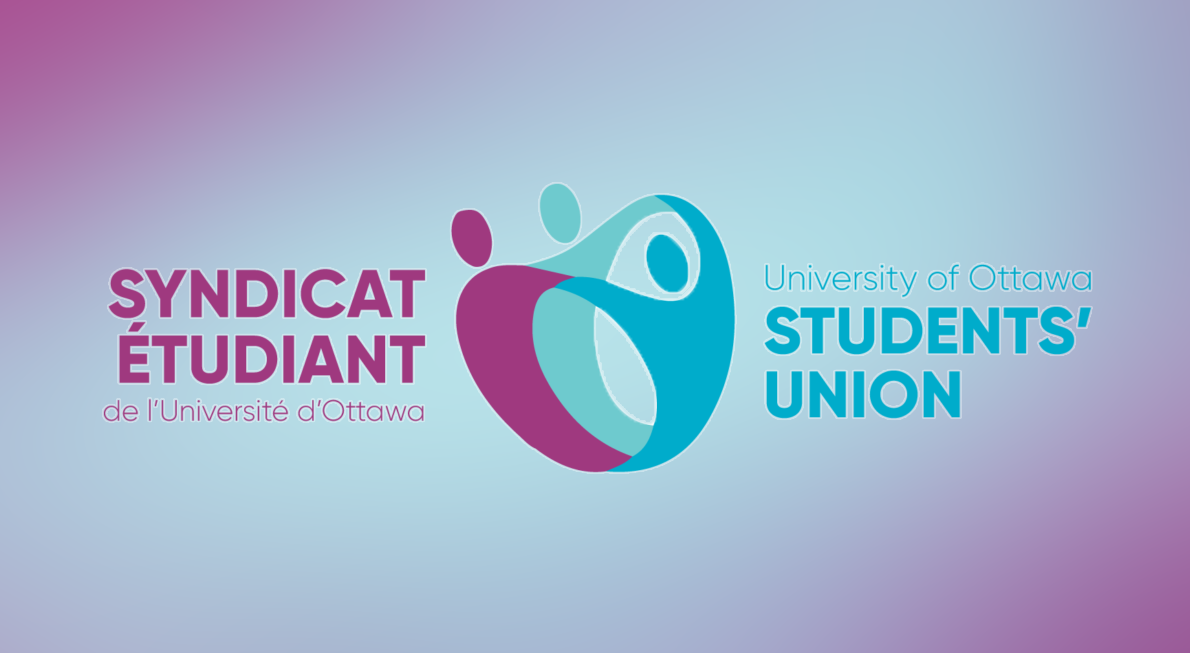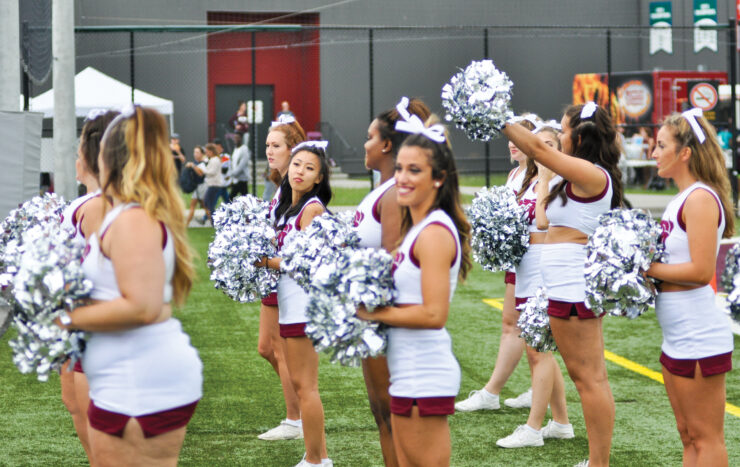We tried to find out why voting rates have seen a significant decline since UOSU’s first election in 2019
In the recent University of Ottawa Students’ Union (UOSU) general elections, low turnout and high abstention rates continued to plague the Union.
This year’s election saw 2,209 eligible voters cast their ballot — seven per cent of the 31,598 members eligible to take part. While this figure is similar to last year’s general election turnout of 6.9 per cent, it marks a dropoff from 2020 and 2019’s figures, which were 12.4 and 16 per cent respectively.
This election was characterized by a high rate of abstentions for all positions, ranging from 37.8 to 48.6 per cent.
On online forums such as Reddit, criticisms of UOSU ran rampant during the election process. The Fulcrum asked students why they think low engagement and dissatisfaction remain problematic for UOSU.
Sean Stilwell, a fourth-year computer science student, voted in the recent election. He noted in an email to the Fulcrum that he abstained from any position that didn’t offer a “no confidence option.”
Stilwell traced recent criticisms levelled against UOSU to perceived hypocrisy.
“They celebrate convincing the administration to back down on an out-of-province tuition increase and then turn around to ask us to pay them an extra $65 fee per semester in the middle of a pandemic,” wrote Stilwell.
He added that it seems like the union is “perfectly happy for us to pay more — as long as it goes to them.”
Stilwell wrote that correspondence from the union celebrating accomplishments does not always align with the actual experience of students on campus, where these achievements are less visible.
“I would be amazed if those services [highlighted in UOSU’s election email blast] are worth $200 per year to the average student. In contrast, it seems like many services, like Agora, were ended when the UOSU replaced the SFUO.”
The reluctance to pay higher fees is related to a perception amongst students that the Union is a career stepping stone for its executive.
“In general, I think people view the UOSU as a resume-building activity for a select group of students that we pay $200 per year to support,” adds Stilwell.
Zhiming Sha, an international student from China in his third year of the public administration and political science program, also voted in the recent elections.
“For me, because I’m an international student, I’m from China, Chinese international students do have a large percentage in our student population, but if you look at who voted, I know a lot of people actually don’t. I’m one of a handful of Chinese international students that actually voted,” said Sha in an interview with the Fulcrum.
Sha said he abstained from all of the votes except for two. Aside from his abstention from voting for the position of Francophone affairs commissioner, which he feels he does not warrant a vote on since he is not a French speaker himself, his abstentions reflected a lack of choice.
“If there’s one candidate running for that position, I abstained,” he said. “First, for most of them, I don’t know them well, and we never had communications during the campaign, so I don’t want to vote yes or no. And to be honest, they will be elected anyway.”
Nonetheless, he thought it was important to engage with the election.
“I believe voting is important, as international students don’t really get the opportunity to speak up. And as the general student population, this is your chance to make yourself heard, because once they get elected, you mostly have no control over their daily activities.”
Sha’s comment is indicative of a wider sentiment that engagement between UOSU and the student body stops after election day.
“A lot of times, I do drop by for office hours — and I don’t know, but I’m pretty sure that not a lot of students know that they’re having them,” added Sha.
Sha said that what feels like a lack of ongoing discourse between students and the student union results in a disconnect between the kinds of advocacy students want and the kinds they receive.
“It comes to the conclusion of alienation that allows students to feel that they’re not being represented. If you look at the past two years, a lot of what they did was politically motivated … instead of really making concrete changes for students.”
Sha said that UOSU’s public stances on geopolitical issues not only fail to affect the kind of concrete change that restores students’ faith in the union, but can actually alienate elements of the student body.
“When you pick a side, you essentially deviate from their actual work as a student union, which should be inclusive and represent all student populations. If you [want to] make political statements, there are many other channels.”
Sha added that by politicizing the union, other political factions of the University are alienated as well.
“If you want to be more political, you should have, for example, NDP, Liberal, and Conservative backgrounds, and you don’t really see that. It’s always progressive — which is not bad. But you definitely lack a diverse view. I think that’s what the main concern is, and I think they can do better.”
First-year communications and sociology student Eve Tremblay added that voting in student elections is very much a social affair.
“Seeing them on social media definitely helped. Also, my circle of friends voted. So that definitely motivated me, because they were like, ‘did you vote yet?’ ”
She adds that beneath the social element, there’s a drive to have her voice heard and to play a small role in the changes she’d like to see. But she admits not all her peers feel that way.
“I think a part of it is, it kind of feels like an extra task. And if people already feel overwhelmed with school and things like that, maybe they’ll think ‘I just don’t have time to vote right now.’ ”
She thinks that student elections should lean into the social element if they want to encourage students to overcome this kind of apathy.
“Maybe if it was an in-person thing, and you could go with your friends, maybe that would motivate people more,” she said.
“I think if it felt like a little bit more of a big deal, in the sense that you had a place to go, and you could go with your friends, I’m sure that a lot more people would go just for the social aspect of it. I know with the federal election, that’s what a lot of people were doing.”
She added that increasing visibility on campus also helps cut through the algorithms to reach a more general audience. Noting the persistent uncertainty of the pandemic, she doesn’t think that online voting should be removed as an option entirely, but wonders if there’s room for a more hybrid format next year.
All three students agree in terms of potential fixes, it mainly comes down to increased transparency and communication.
Sha noted that outgoing president Tim Gulliver’s official UOSU Instagram page was inactive for eight months.
“I think it was March 2021 — and then the next update was [January]. So I don’t really know what they did, to be honest,” he said.
Stilwell echoed Sha’s concerns.
“The UOSU promised transparency and accountability when they were chosen to replace the SFUO. I think it would really help the UOSU’s image to reaffirm this commitment. They need to share exactly how the money is being spent and how decisions are being made. Most importantly, this needs to be done in a way that’s accessible and easy to understand.”






